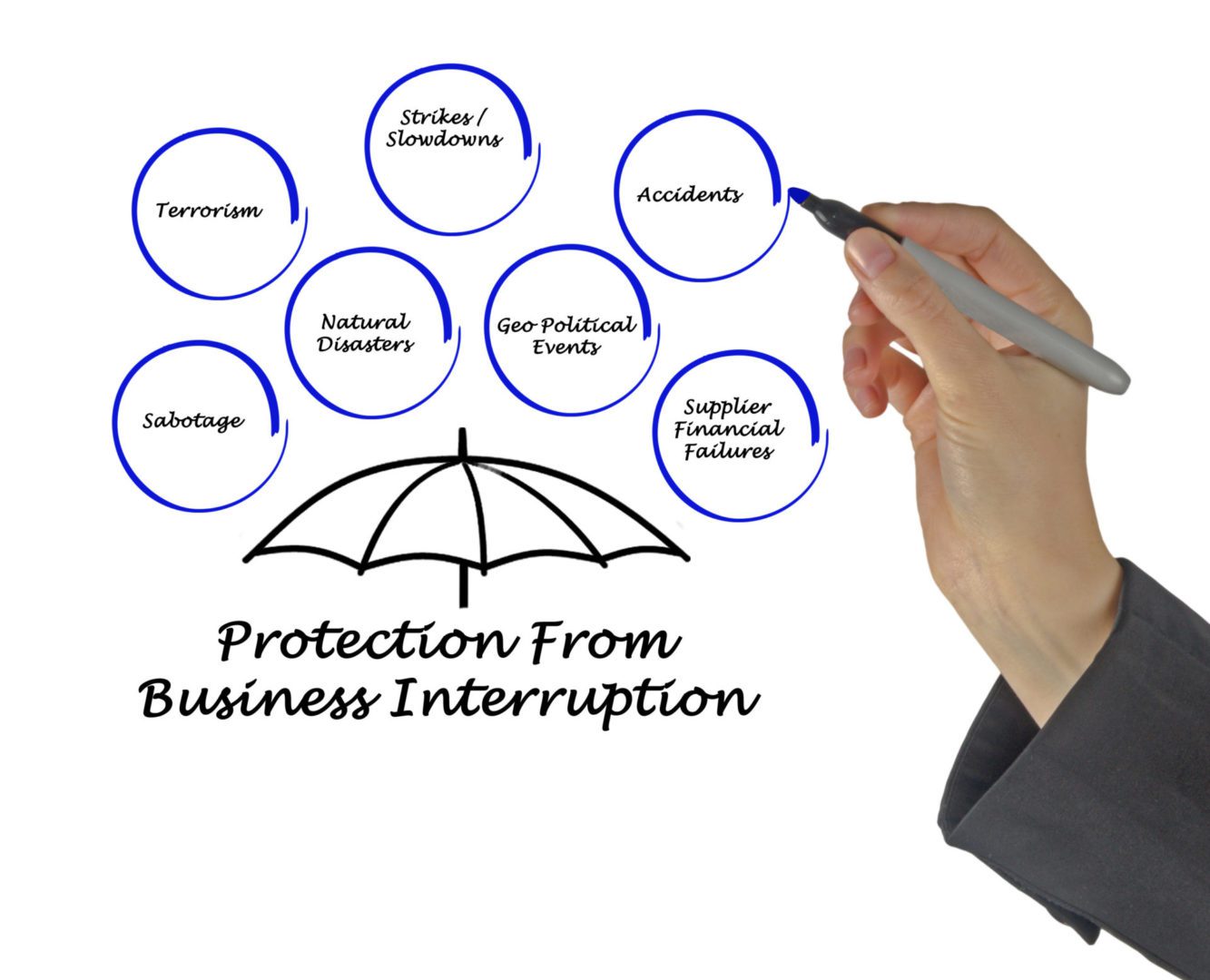Do I Need Business Interruption Insurance Coverage?

Owning and running a business is a difficult job in and of itself, but it can become needlessly arduous if you ever find yourself lacking the proper insurance. Property insurance, for example, is something almost every business owner considers a top priority prior to opening. Sooner or later, it comes in handy when equipment is damaged in a covered event. Yet, what if the property damage is bad enough that
your business is forced to temporarily close? Do you know if your
business insurance package
includes business interruption insurance coverage? The loss of income could be crippling, depending on how long your business is forced to close. The best way to protect your business against this type of situation is to purchase business interruption insurance coverage.
What Is Business Interruption Insurance?
Business interruption insurance, also known as contingent business interruption coverage or business income insurance, is a type of business insurance coverage that helps replace income your business loses in certain situations where you’re forced to close temporarily. For example, if a fire damages part of your building and you must shut down until everything is fixed, business interruption insurance coverage would help with the costs of lost income. Business income insurance may also cover other closures, such as a government-directed road closure. Business interruption insurance coverage comes with a “restoration period,” which is the number of days your policy will assist with income and expenses. It’s important to note that this restoration period doesn’t immediately kick in; there’s typically a 48 or 72-hour waiting period. The restoration period is limited to 30 days, but it can be extended to 360 days through endorsement.What Does Business Interruption Insurance Cost?
A number of factors play a part in determining the cost of business interruption insurance coverage:- Industry
- Business size
- The amount of coverage you want/need
What Does Business Interruption Insurance Cover?
Business interruption insurance is supposed to help cover your business’s operating costs in the event of a covered loss that requires a temporary shutdown. Here’s an overview of what is typically covered:- Revenue your business would make if it was open.
- Payroll for those employed at that location.
- Mortgage, rent, and lease payments for the business itself.
- Taxes
- Loan payments
- Relocation costs, training costs, or extra expenses incurred directly as a result of the temporary closing.
- Broken equipment and items from a covered event.
- Undocumented income, meaning anything not listed in the financial records for your business.
- Communicable diseases, such as COVID-19, that cause a shutdown in your operation.
- Utilities, due to them typically being turned off when a business temporarily closes.
- Flood and earthquake damage, for which you need separate policies.
Choosing a Level of Business Interruption Coverage
Determining the level of business interruption coverage to go with can be difficult, but the general rule of thumb is to make sure your business is covered for more than a few days. No two major disasters are the same, but one common theme is that it takes longer to get back in business than most people realize. The best way to determine the coverage limit for your business interruption insurance policy is to refer to your gross earnings and projections to gauge future profits. If the costs of your interruption exceed your coverage limit, you’ll be forced to pay out of pocket for any extra expenses. You can also ask yourself a few questions to help get a better idea of your need:- What type of physical loss or damage is most likely to impact your business?
- Is there anything you can do to reduce the likelihood of physical loss or damage? For example, is your business properly equipped with fire alarms, extinguishers, and sprinklers?
- If your business is temporarily closed due to a covered loss, could you find a place to temporarily rent to do business?